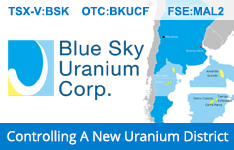A 12-week, Stage 2a study using NP-120 or Ifenprodil to treat idiopathic pulmonary fibrosis (IPF) and chronic cough was recently completed by Vancouver-based Algernon Pharmaceuticals Inc. (AGN:CSE; AGNPF:OTCQB; AGN0:XFRA) — and it demonstrated that 13 out of 20 IPF patients who enrolled had stable or better lung capacity after 12 weeks.
The Stage 2 study’s positive topline data move the company one step closer to bringing a new IPF treatment to market.
“The IPF data look quite good,” said Dr. Martin Kolb, professor of respirology at McMaster University and global expert on IPF. Kolb is also a member of Algernon’s Medical and Scientific Advisory Board.
Current treatments cost as much US$90,000 annually in a market expected to be worth more than US$4.2 billion by 2030.
IPF is a chronic lung disorder that results in patients suffering shortness of breath after stiffening, thickening and ultimately scarring (fibrosis) of their lung tissue. The disease is usually terminal less than six years after diagnosis.
Based on the positive data, Algernon plans to file a Pre-Investigational New Drug Application with the U.S. Food and Drug Administration (FDA) for a Phase 2b IPF study.
If the study gets the green light, the company could switch to a new once-a-day dose of Ifenprodil. Patients who were in the 2a study took the drug three times daily.
Algernon CEO Christopher J. Moreau said that and much more has yet to be determined.
“We have to communicate with the FDA and determine what our plan is. Is our study going to be 100 patients, 300 or 400? How many arms will the study have? Are we going to have different dosing?” Moreau told Streetwise Reports. “It's complex, but it will be a number of months before we would be ready to start a Phase 2b (clinical trial.”
He added that some of the some of the biggest players in the pharmaceutical space are keeping an eye on Algernon and have already signed non-disclosure agreements with the company.
How the Study Worked
IPF patients in the Stage 2a study in study groups in Australia and New Zealand had their lung function measured by forced vital capacity (FVC) — where a patient blows into a device measuring the force of their blowing — at the start of the trial, and then again after 12 weeks.
Patients whose FVC declined were classified as non-responders, while those whose FVC improved or remained stable were classified as responders.
Of the IPF 20 patients who enrolled, 13 (65%) had stable or improved FVC over the 12-week treatment period, whereas 40% of those treated with a placebo demonstrated similar or higher FVC over 12 weeks.
The drug essentially targets the brain’s N-methyl-D-aspartate (NMDA) receptors and keeps them from glutamate signalling or telling the brain to cough.
Algernon also reported that many of the serum markers — proC3, C3M, C6M, reC1M, proC8 and ELP-3 — trended lower during testing but the data did not reach statistical significance. Previous studies have shown that as these markers go up, so does the risk of disease progression and increased mortality.
Old Drugs, New Purpose
Drug studies typically start with pre-clinical trials and then move to Phase 1, which determines if a drug is toxic. About 95% of drug studies end there.
Once a drug is considered safe, it can go to a Stage 1a clinical trial, which Algernon just completed with Ifenprodil. From there, it moves to the Stage 1b trial and then Phase 3, which must involve a much larger study group. Once a drug successfully clears that last Phase 3 hurdle, it can be approved. The whole process usually takes about 13 or 14 years.
Algernon uses a different strategy. Its scientists examine research papers on drugs that have already been approved and attempt to apply those same drugs to different problems. One might say it’s akin to teaching an old drug a new “trick.”
By using a drug like Ifenprodil, which has already been approved, it shaves years off the development timeline.
Ifenprodil is still being distributed by Sanofi in Japan where it is used to treat vertigo.
"The benefit of this strategy is that it shortens the timeframe of the trials because they can generally skip the Phase 1 because they already know that the drug is safe, and they can get right into Phase 2 to identify whether it works or not," AlphaNorth Asset Management co-founder Steve Palmer told Streetwise Reports in a story originally published on July 11.
IPF is also classified as an orphan disease indication — that means it’s considered a significant health problem and any new approved drugs to treat IPF in the U.S. get at least seven years of market exclusivity. It’s 10 years in Europe.
Algernon plans to file for an orphan designation with the U.S FDA for Ifenprodil and IPF shortly, as well as an application with the FDA for a Breakthrough Therapy designation.
Everybody’s Business
In addition to finding a new treatment for IPF, Algernon is also seeking ways to patent N, N-dimethyltryptamine (DMT), a psychedelic compound to treat strokes — a global market estimated at US$40 billion annually.
Another drug known as Repirinast, which was initially developed to treat asthma, is being repurposed by Algernon to treat kidney disease.
Repirinast was originally developed by Mitsubishi Tanabe Pharma for the Japanese market.
Algernon recently completed a CA$1.2 million financing, basically replenishing the CA$1.2 million it had at the end of Q2. The company’s current burn rate is about $100,000 per month.
The company has 1.979 million shares issued, a small sum for any publicly traded company.
Toronto-based AlphaNorth Asset Management owns about 7% of Algernon, while Moreau owns slightly more than 1%.
Algernon trades in a 52-week range of CA$13 and CA$3.06. It closed at CA$3.14 on July 15.
















































